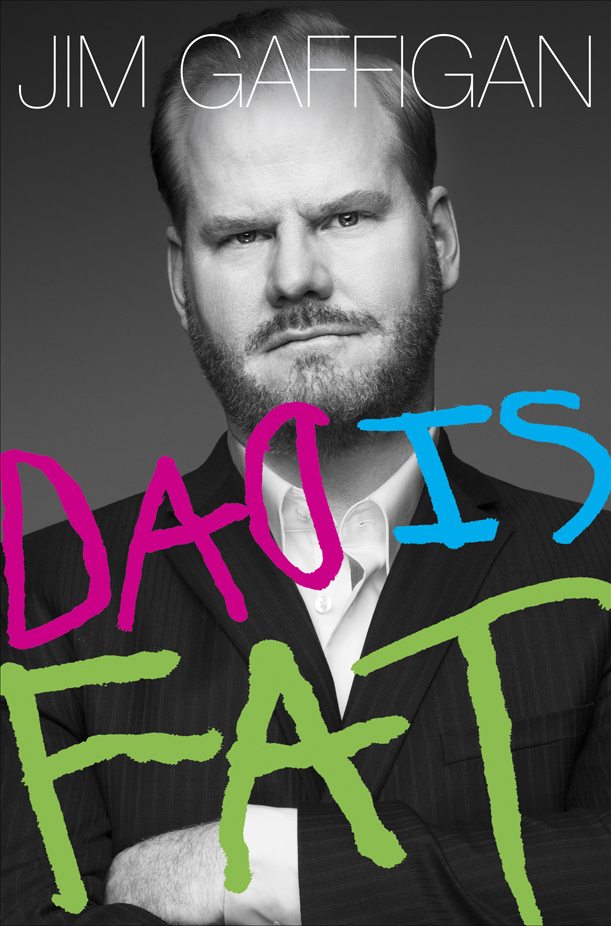Have you ever wondered what parents in your church are thinking as they experience the joys and trials of raising young kids? In the fast and funny book Dad Is Fat, well-known comedian Jim Gaffigan offers that insight as he recounts the ups and downs and the ins and outs of raising five kids in a two-bedroom, walk-up apartment in New York City.
Gaffigan provides a humorous (and at times humiliating) inside look at married life with young children. And this account could even help evangelical churches love and serve this culturally endangered species. Though Gaffigan is a nominal Catholic, and the work contains some vulgarity in both word choice and subject matter, Dad Is Fat offers a window into the common American family experience that can help evangelicals evaluate their ministry to families.
Several themes shaping Gaffigan’s portrayal of American families can frame an appraisal of evangelical family ministry. First, Dad Is Fat highlights the cultural oddity of kids. Whether it’s through the comments of people about how many children he has (“Don’t you know what’s causing that?”) or the reactions of onlookers as they hustle their horde of kids onto a packed subway train, Gaffigan repeatedly reveals how contemporary culture sees children as strange. As birth rates drop, many see children as a luxury item to enjoy only if they don’t disrupt personal pursuits. As churches minister to families, then, we must find ways to highlight the countercultural glory of children.
Dad Is Fat
Jim Gaffigan
Second, Dad Is Fat portrays the nagging parenting guilt experienced by many moms and dads. Gaffigan recounts many ways parents feel guilty because they don’t live up to the lofty expectations of others (and often themselves): when he travels; when he doesn’t spend enough time with his kids; when he spends too much time with his kids as he should be doing something else. “No matter how hard you try to be a good parent,” Gaffigan writes, “you always know deep down that you could do more” (26). But for those of us in Christ, the grace of God is greater than the guilt of parenting. As churches minister to families, we must find ways to equip them to battle parenting guilt with the power of the gospel.
Third, Dad Is Fat reflects on the challenges of religion as parents raise children. Along with his wife, whom Gaffigan affectionately calls a “Shiite Catholic,” he finds the good of religion mixed with the bad of reality. His account of wrangling five kids into the pews will leave you in stitches. “When I was growing up, just getting to church caused such anxiety in our home, it seemed to defeat the purpose,” he quips (170). As churches minister to families, we must help parents see the purpose not just of church attendance but also of intentional discipleship and growth for their children.
Fourth, Dad Is Fat recounts the transformative power of parenting. “I believe each of my five children has made me a better man,” Gaffigan claims. “So I figure I only need another thirty-four kids to be a pretty decent guy. Each one of them has been a pump of light into my shriveled black heart” (240). Amid all the dirty diapers from the kids, all the dirty dishes from the takeout, and all the dirty looks from the neighbors, Gaffigan recognizes that kids can have a cleansing effect on the selfishness that forms on the heart. As churches minister to families, they must show parents how raising children is a crucial component of how God is making them more like Christ.
Fifth, Dad Is Fat reveals how parents can be a window to God for their children. “I am a little godlike to my children,” Gaffigan observes. “This is what I’m going to miss the most. Even though they don’t view me as the tyrant I’d hope to be, to them I’m all-powerful: I’m their creator and provider. They love me and kind of fear me” (272). Whether children need a toy some of the time, a bathroom break at just the wrong time, or ice cream (as Gaffigan points out) all of the time, the way parents meet their children’s needs and desires can have a big effect on how they come to understand their heavenly Father. As churches minister to families, then, we must equip parents to reflect the loving sacrifice of Christ in the way they serve their kids.
The primary benefit of Dad Is Fat is not a Hebrews 12-like guide to godly parenting but a Romans 1-like window into the common cultural mindset toward children. Those who read Gaffigan’s book will not only nod their head in agreement at the cultural insights he offers but also shake their head in disbelief at the funny ways he portrays them. In the end, the book reminds the church of its glorious call to equip families to love and lead their children with the power of the gospel.
